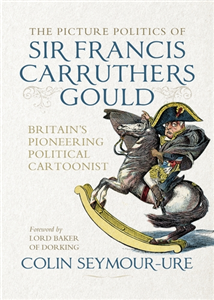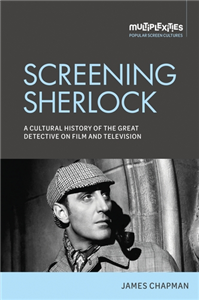Your Search Results
-
David West Children's Books
For over 25 years, David West Children’s Books have created beautifully designed, highly illustrated children’s non-fiction books for the UK and international market.
View Rights Portal
-
Promoted ContentMarch 2023
Einfach erklärt - Künstliche Intelligenz - Fake News - Unsere digitale Zukunft
Leicht verständliches Sachbuch über Algorithmen und Probleme digitaler Kommunikation - Für Kinder ab 10 Jahren
by Manfred Theisen, Mo Büdinger
Die Reihe Einfach erklärt hält, was sie verspricht: Hier werden komplexe Themen leicht verständlich aufbereitet und anschaulich illustriert. Kurze Kapitel, eine klare Struktur und der coole Mix aus Fotos und modernen Infografiken helfen Leser*innen ab zehn Jahren, schnell und unkompliziert neues Wissen zu erlangen. So klappt es mit dem Durchblick – garantiert! Was ist ein Algorithmus? Können Maschinen denken? Welche technischen Entwicklungen wird es in der Zukunft geben? Wie entstehen Fake News? Und wie können Staaten und Regierungen all das nutzen, um ihre Bevölkerung zu beeinflussen? Der Autor spannt den Bogen von Algorithmen über den Einsatz von künstlicher Intelligenz in verschiedenen Bereichen bis hin zum hochaktuellen Thema Propaganda. Durch leicht verständliche Erklärungen und zahlreiche detaillierte Infografiken wird so das Interesse an unserer technischen Zukunft geweckt.
-
Promoted ContentChildren's & YA
Things. My 200 Picture Book
by Magdalena Skala
The very smallest children can identify and name objects from their homes in this award-winning, large-format board book. Magdalena Skala’s fantastic illustrations use bright colours and clear forms to depict the most important objects from the nursery, kitchen, garden, lounge, bathroom – in short from children’s everyday worlds: a great start into the world of words – and books! Magdalena Skala was awarded the 2019 Meefisch Prize and the Marktheidenfeld Prize for picture book illustration for THINGS. MY 200-PICTURE BOOK.
-
 Trusted Partner
The ArtsJanuary 2019
Trusted Partner
The ArtsJanuary 2019European Film Noir
by Andrew Spicer
European Film Noir is the first book to bring together specialist discussions of film noir in specific European national cinemas. Written by leading scholars, this groundbreaking study provides an authoritative understanding of an important aspect of European cinema and of film noir itself, for too long considered as a solely American form. The Introduction reviews the problems of defining film noir, its key characteristics and discusses its significance to the development of European film, the relationship of specific national films noirs to each other, to American noir and to historical and social change. Eight chapters then discuss film noir in France, Germany, Britain and Spain, analysing both earlier developments and the evolution of neo-noir through to the present. A further chapter explores film noir in Italian cinema where its presence is not so well defined. Each piece provides a critical overview of the most significant films in relation to their industrial and social contexts. European Film Noir is an important contribution to the study of European cinema that will have a broad appeal to undergraduates, cinéastes, film teachers and researchers.
-
 Trusted Partner
The ArtsJanuary 2019
Trusted Partner
The ArtsJanuary 2019Realist film theory and cinema
The nineteenth-century Lukácsian and intuitionist realist traditions
by Ian Aitken
'Realist film theory and cinema' embraces studies of cinematic realism and 19th century tradition, the realist film theories of Lukács, Grierson, Bazin and Kracauer, and the relationship of realist film theory to the general field of film theory and philosophy. This is the first book to attempt a rigorous and systematic application of realist film theory to the analysis of particular films. The book suggests new ways forward for a new series of studies in cinematic realism, and for a new form of film theory based on realism. It stresses the importance of the question of realism both in film studies and in contemporary life. Aitken's work will be of interest to scholars and advanced students of film studies, literary studies, media studies, cultural studies and philosophy.
-
 Trusted Partner
The ArtsJune 2021
Trusted Partner
The ArtsJune 2021Lukácsian film theory and cinema
A study of Georg Lukács' writing on film 1913–1971
by Ian Aitken
Lukácsian film theory and cinema explores Georg Lukács' writings on film. The Hungarian Marxist critic Georg Lukács is primarily known as a literary theorist, but he also wrote extensively on the cinema. These writings have remained little known in the English-speaking world because the great majority of them have never actually been translated into English - until now. Aitken has gathered together the most important essays and the translations appear here, often for the first time. This book thus makes a decisive contribution to understandings of Lukács within the field of film studies, and, in doing so, also challenges many existing preconceptions concerning his theoretical position. For example, whilst Lukács' literary theory is well known for its repudiation of naturalism, in his writings on film Lukács appears to advance a theory and practice of film that can best be described as naturalist. Lukácsian film theory and cinema is divided into two parts. In part one, Lukács' writings on film are explored, and placed within relevant historical and intellectual contexts, whilst part two consists of the essays themselves. This book will be of considerable interest to scholars and students working within the fields of film studies, literary studies, intellectual history, media and cultural studies. It is also intended to be the final volume in a trilogy of works on cinematic realism, which includes the author's earlier European film theory and cinema (2001), and Realist film theory and cinema (2006).
-
 Trusted Partner
The ArtsJune 2021
Trusted Partner
The ArtsJune 2021Medieval film
by Anke Bernau, Bettina Bildhauer
Medieval film explores theoretical questions about the ideological, artistic, emotional and financial investments inhering in cinematic renditions of the medieval period. What does it mean to create and watch a 'medieval film'? What is a medieval film and why are they successful? This is the first work that attempts to answer these questions, drawing, for instance, on film theory, postcolonial theory, cultural studies and the growing body of work on medievalism. Contributors investigate British, German, Italian, Australian, French, Swedish and American film, exploring topics such translation, temporality, film noir, framing and period film - and find the medieval lurking in inexpected corners. In addition it provides in-depth studies of individual films from different countries including The Birth of a Nation to Nosferatu, and Robin Hood: Prince of Thieves. Medieval Film will be of interest to medievalists working in disciplines including literature, history, to scholars working on film and in cultural studies. It will also be of interest to undergraduates, postgraduates and to an informed enthusiast in film or/and medieval culture.
-
 Trusted Partner
The ArtsJanuary 2019
Trusted Partner
The ArtsJanuary 2019Medieval film
by Anke Bernau, Bettina Bildhauer
Medieval film explores theoretical questions about the ideological, artistic, emotional and financial investments inhering in cinematic renditions of the medieval period. What does it mean to create and watch a 'medieval film'? What is a medieval film and why are they successful? This is the first work that attempts to answer these questions, drawing, for instance, on film theory, postcolonial theory, cultural studies and the growing body of work on medievalism. Contributors investigate British, German, Italian, Australian, French, Swedish and American film, exploring topics such translation, temporality, film noir, framing and period film - and find the medieval lurking in unexpected corners. In addition it provides in-depth studies of individual films from different countries including The Birth of a Nation to Nosferatu, and Robin Hood: Prince of Thieves. Medieval film will be of interest to medievalists working in disciplines including literature, history, art history, to scholars working on film and in cultural studies. It will also be of interest to undergraduates, postgraduates and to an informed enthusiast in film or/and medieval culture.
-
 Trusted Partner
Trusted Partner
-
 Trusted Partner
The ArtsJune 2026
Trusted Partner
The ArtsJune 2026The picture politics of Sir Francis Carruthers Gould
Britain's pioneering political cartoonist
by Colin Seymour-Ure, Mark Bryant
This is the first major study of Britain's pioneering graphic satirist, Sir Francis Carruthers Gould (1844-1925), the first staff political cartoonist on a daily newspaper in Britain, and the first of his kind to be knighted. Written by the distinguished media historian, Colin Seymour-Ure, it is essential reading for anyone interested in cartoons, caricature and illustration and will also be welcomed by students of history, politics and the media. It examines Gould's career in Fleet Street until his retirement after the First World War. It also discusses his illustrations for magazines and books and there is an analysis of his use of symbolism and literary allusion to lampoon such eminent politicians as Gladstone and Joseph Chamberlain. As Lord Baker says in his Foreword, this book is 'a major contribution to our knowledge of British cartooning.'
-
 Trusted Partner
The ArtsDecember 2024
Trusted Partner
The ArtsDecember 2024The picture politics of Sir Francis Carruthers Gould
Britain's pioneering political cartoonist
by Mark Bryant
This is the first major study of Britain's pioneering graphic satirist, Sir Francis Carruthers Gould (1844-1925), the first staff political cartoonist on a daily newspaper in Britain, and the first of his kind to be knighted. Written by the distinguished media historian, Colin Seymour-Ure, it is essential reading for anyone interested in cartoons, caricature and illustration and will also be welcomed by students of history, politics and the media. It examines Gould's career in Fleet Street until his retirement after the First World War. It also discusses his illustrations for magazines and books and there is an analysis of his use of symbolism and literary allusion to lampoon such eminent politicians as Gladstone and Joseph Chamberlain. As Lord Baker says in his Foreword, this book is 'a major contribution to our knowledge of British cartooning.'
-
 Trusted Partner
The ArtsJune 2025
Trusted Partner
The ArtsJune 2025Toronto New Wave cinema and the anarchist-apocalypse
by David Christopher
The Toronto New Wave (TNW) comprises a group of avant-garde filmmakers working in Canada from the 1980s and into the new millennium whose innovative film works share significant affinities with anarchist themes and aesthetics. Several of the TNW filmmakers openly identify as anarchists and/or acknowledge a debt to anarchism in their production of highly apocalyptic narratives as part of their cinematic political projects. However, recognition of anarchism's progressive apocalyptic theoretical relevance has yet to be substantially taken up by scholarship in cinema analysis. This analysis introduces an anarchist-inflected analytical methodology to understand the apocalyptic-revelatory political work these films attempt to accomplish in the perceptual space between the filmic texts and both their auteurs and potential viewers, and to re-locate the TNW within cinema history as an ongoing phenomenon with new significance in an apocalyptic era of digital distribution.
-
 Trusted Partner
The ArtsFebruary 2025
Trusted Partner
The ArtsFebruary 2025Screening Sherlock
A cultural history of the Great Detective on film and television
by James Chapman
Screening Sherlock is the first book-length academic study of the film and television career of the most famous detective in fiction. Chapman explores the contexts, adaptation strategies and critical reception of Sherlock Holmes (and Dr Watson) on film and television in Britain and the United States. The book includes case studies of such famous Holmes impersonators as William Gillette, Basil Rathbone, Peter Cushing, Jeremy Brett and Benedict Cumberbatch, as well as charting a path through many lesser-known productions. From early cinema to the Hollywood studio system, and from heritage drama to contemporary postmodern television, Screening Sherlock is an indispensible work for all aficionados of Arthur Conan Doyle's consulting detective of Baker Street.
-
 Trusted Partner
Trusted Partner
-
 Trusted Partner
The ArtsDecember 2019
Trusted Partner
The ArtsDecember 2019Screening the Paris suburbs
From the silent era to the 1990s
by Philippe Met, Annie Fourcaut, Roland-François Lack, Jean-Louis Pautrot, Keith Reader, Margaret Flinn, Eric Bullot, Tristan Jean, Malcolm Turvey, Elisabeth Cardonne-Arlyck, Térésa Faucon, Philippe Met, Camille Canteux, Derek Schilling, Guillaume Soulez, David Vasse, Derek Schilling
Decades before the emergence of a French self-styled 'hood' film around 1995, French filmmakers looked beyond the gates of the capital for inspiration and content. In the Paris suburbs they found an inexhaustible reservoir of forms, landscapes and social types in which to anchor their fictions, from bourgeois villas and bucolic riverside cafés to post-war housing estates and postmodern new towns. For the first time in English, contributors to this volume address key aspects of this long film history, marked by such towering figures as Jean Renoir, Jacques Tati and Jean-Luc Godard. Idyllic or menacing, expansive or claustrophobic, the suburb served divergent aesthetic and ideological programmes across the better part of a century. Themes central to French cultural modernity - class conflict, leisure, boredom and anti-authoritarianism - cut across the fifteen chapters.
-
 Trusted Partner
Trusted Partner
-
 Trusted Partner
Trusted Partner
-
 Trusted Partner
Humanities & Social SciencesSeptember 2020
Trusted Partner
Humanities & Social SciencesSeptember 2020Queer Muslim diasporas in contemporary literature and film
by Alberto Fernández Carbajal, Amina Yaqin
-
 Trusted Partner
The ArtsJanuary 2019
Trusted Partner
The ArtsJanuary 2019The cultural politics of contemporary Hollywood film
by Chris Beasley, Heather Brook
-
 Trusted Partner
The ArtsJanuary 2019
Trusted Partner
The ArtsJanuary 2019The British working class in postwar film
by Philip Gillett
An incidental pleasure of watching a film is what it tells us about the society in which it is made. Using a sociological model, The British working class in postwar film looks at how working-class people were portrayed in British feature films in the decade after the Second World War. Though some of the films examined are well known, others have been forgotten and deserve reassessment. Original statistical data is used to assess the popularity of the films with audiences. With its interdisciplinary approach and the avoidance of jargon, this book seeks to broaden the approach to film studies. Students of media and cultural studies are introduced to the skills of other disciplines, while sociologists and historians are encouraged to consider the value of film evidence in their own fields. This work should appeal to all readers interested in social history and in how cinema and society works.
-
 Trusted Partner
The ArtsOctober 2024
Trusted Partner
The ArtsOctober 2024Secret Cinema and the immersive experience industry
by Sarah Atkinson, Helen W. Kennedy


























